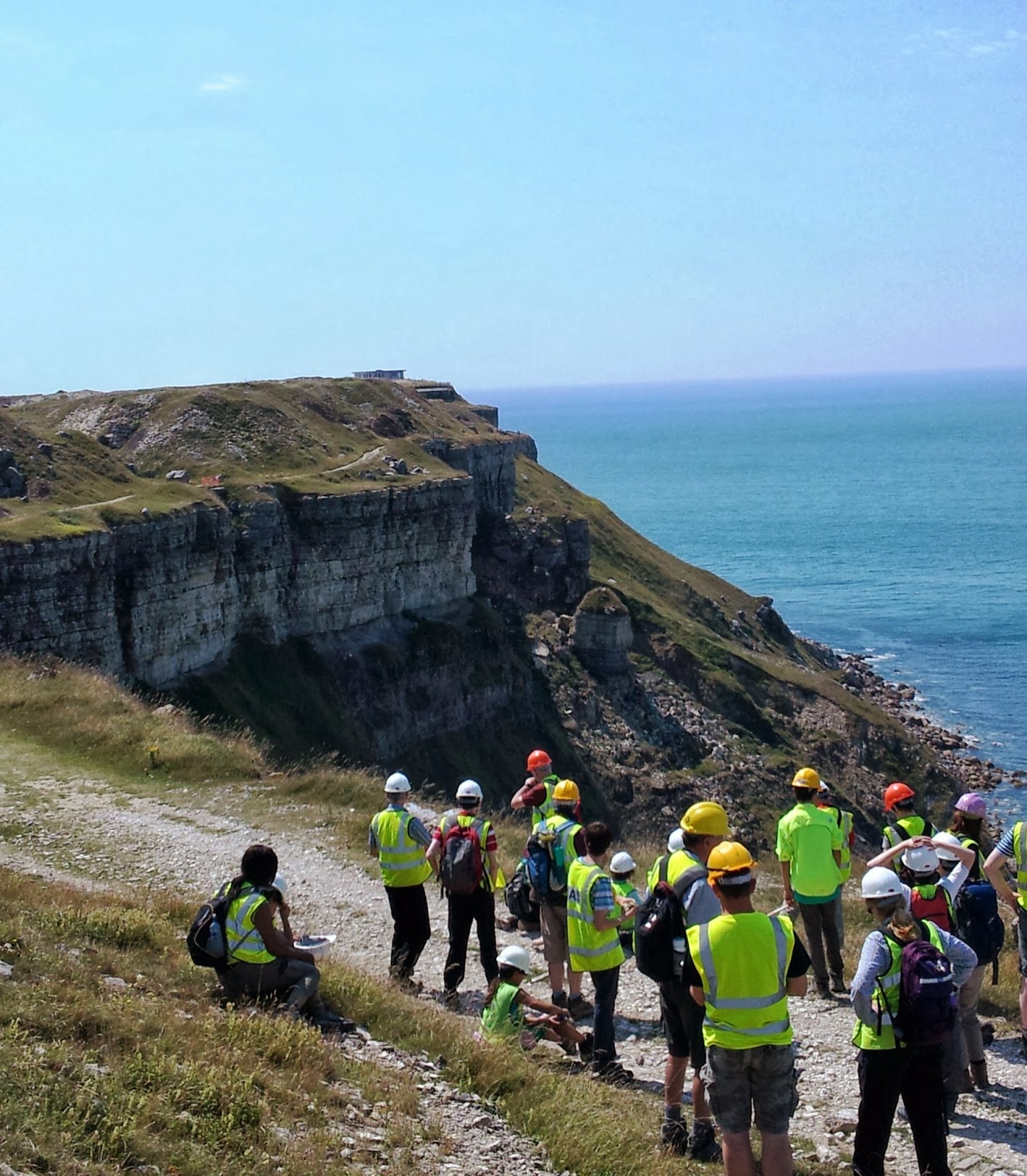St Nicholas Primary jumped aboard a Brownsea Island Ferry for a cruise around Poole Harbour. With the help of RSPB volunteers they managed to spot and identify Spoonbills, Cormorants, Little Egrets and the fastest animal on the planet the Peregrine Falcon.
Monday, 14 October 2013
Wednesday, 18 September 2013
An unusual visitor....
Whilst looking at the remains of a young Wood pigeon that a Sparrow hawk had half eaten on the front lawn at Leeson, Mike had huge surprise to find a cow standing in front of him.
There's been a few other interesting finds recently. While at Studland Heath with a Primary School, Mike found this caterpillar.
.jpg) |
| It was soon rounded up and put back with the rest of the noisy herd. |
.jpg) |
Emperor Moth Saturnia pavonia caterpillar. This species feeds on moorland plants such as Heather Calluna and Bramble Rubus. It is quite common on Studland Heath. |
 |
| Adult Emperor Moth - image from the internet |
Friday, 13 September 2013
Duke of Edinburgh Week at Leeson House
Gold Award students from across the UK have recently stayed at Leeson House.They took part in lots of activities to help build towards their Gold Award application. Amazing weather and an enthusiastic group made the week run extremely well.
 |
| Beginning the Night Navigation exercise |
 |
| Conservation work on Studland Heath |
 |
| Litter pick at Kimmeridge Bay where more than 25 Kg of litter was cleared. |
Monday, 5 August 2013
Rockwatch 2013
Saturday, 27 July 2013
Sweltering Summer...
It's been a great Summer for fieldwork and wildlife this year!
 |
| The view towards Dancing Ledge on our popular walk to the coast |
 |
| The Six-spot Burnet, Zygaena filipendulae |
 |
| Large Elephant Hawkmoth's Deilephila elpenor have been dominating some of the moth trapping at Leeson. |
Friday, 14 June 2013
Life on the Ocean Waves
Ben and Yewstock School took a trip down to Kimmeridge Bay to see what they could scavenge for an art attack in the evening. From the treasures they found they created a fab Ocean Scene!
Monday, 6 May 2013
I.B Environmental Systems and Societies - fieldwork in the sun!
A group from Marlborough College studying for their I.B ESS course were rewarded with sunny conditions for fieldwork at Studland and Kimmeridge.
Typical succession investigations were carried out at Studland as well as looking at visitor impact on the dune systems.
At Kimmeridge we looked at calculating species diversity between the mid and lower shores. The tide was perfect and lots of species were recorded.
Typical succession investigations were carried out at Studland as well as looking at visitor impact on the dune systems.
At Kimmeridge we looked at calculating species diversity between the mid and lower shores. The tide was perfect and lots of species were recorded.
 |
| Horses taking a dip |
.jpg) |
| Fantastic tides at Kimmeridge |
 |
| At last, decent field work weather! |
A busy few weeks....
Sunday, 24 March 2013
Tree Planting!!
The Woodland Trust has kindly given us lots of trees to plant to help improve the biodiversity of our hedgerows and woodland areas.
Nine harding working Year 8 pupils from Swanage Middle helped us clear a huge area before we planted about 200 trees!
Thank you to the Wooodland Trust and the Swanage Middle School pupils!
Nine harding working Year 8 pupils from Swanage Middle helped us clear a huge area before we planted about 200 trees!
Thank you to the Wooodland Trust and the Swanage Middle School pupils!
Friday, 15 March 2013
Kimmeridge Zonation - A Level Biology
Mike has had a couple of hardy groups studying marine zonation at Kimmeridge this week. Bright skies but freezing conditions. Even parts of the waterfall were frozen! Lots of intersting marine organisms were found including the Shore Clingfish Lepadogaster lepadogaster.
Also, Golden Star Tunicate Botryllus schlosseri was also found under the many rocks exposed at low tide.
Also, Golden Star Tunicate Botryllus schlosseri was also found under the many rocks exposed at low tide.
 |
| Snakelocks anemone (Anemonia viridis) The pinky purple tips are due to a symbiotic algae living within the tentacles. |
Monday, 25 February 2013
Spring is on its way
Sunday, 17 February 2013
Wildlife and Activity Weekend
This weekend Leeson House held another 'Wildlife and Activity' residential. Enthusiastic children found the first returning Great Crested Newts in our ponds and saw Badgers, a fox, Roe deer and heard several Tawny Owls while out on the Nightwalk.

 |
| Looking for the ringed birds we had just released. |
 |
| Cased Caddis Fly, Hoglouse and True Damselfly Larvae |
 |
| Male Great Crested Newt |
.jpg) |
| Watching the first Great Crested Newt caught this year |

Friday, 18 January 2013
Snow at Leeson
Our visiting school woke up to a winter wonderland this morning. They are currently busy outside making snowmen.
Subscribe to:
Comments (Atom)






















